Cottages
July 5, 2022
This Ontario Farmhouse Could Be In Tuscany

Colomba Lamanna was visiting Tuscany with her husband, Pat, when she had a design epiphany. The Canadian-Italian couple was staying in a remote farmhouse with romantic, sunbaked stone walls. “It had an energy to it,” says Colomba. “It was located in the middle of nowhere, at the top of a hill. All you could see were flocks of sheep coming down the rolling hillside. It was pure peace.” She was officially inspired.
Upon returning to Toronto, Pat, who runs a salt, soil, gravel and waste business, promptly arranged for a showing of a farmhouse in the country that was for sale in Mono, Ont., an hour’s drive northwest of Toronto. Barely unpacked, the Lamannas found themselves standing on a steep hill gazing over the breathtaking Hockley Valley. With its unspoiled meadows and woodlands, the property had a natural splendour, as close to that Tuscan stunner as they were going to get. They were sold.
Keep scrolling to see what they did with this stunning country property!
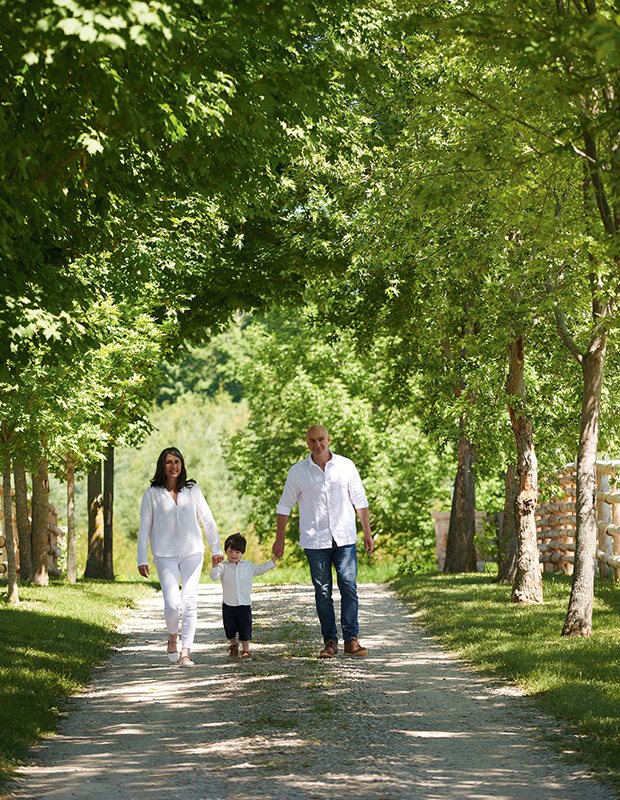
The couple (pictured) took possession of the 22-hectare property, which had three barns (claimed by some cats), as well as a 200-year-old shingled and peaked farmhouse last renovated in the 1980s. The 5,500-square-foot, four-bedroom house also had a wraparound porch that needed an update. The overall plan was to fix up the house as a weekend getaway, but the pandemic flipped that narrative. Instead, over the project’s two-year span, they retained their Toronto condo as a pied-à-terre and spent the bulk of their time at the farmhouse, a better place to raise their son, Jude, 3, and his new baby sister, Elliegrace.
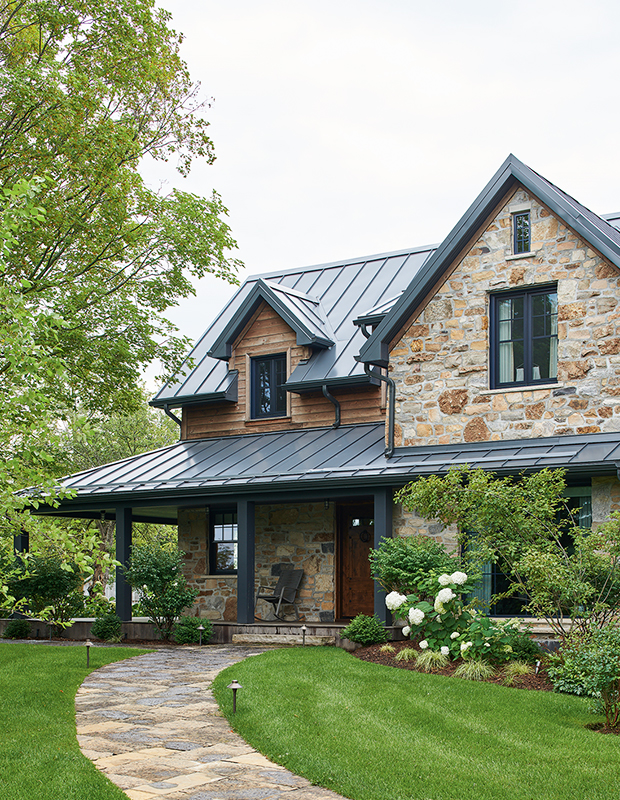
Designer Halina Catherine had beautifully renovated the couple’s condo, so they hired her for round two. (“If I could do 10 houses with Halina, I would,” says Colomba.) Halina has been designing high-end homes and commercial spaces for more than 30 years in both Toronto and St. Simons Island, Ga. “The setting blew me away,” says Halina of the farmhouse. “But it was old and had dated finishes; it wasn’t what you’d call historical, more like a replica from the early 1980s.” A total gut job, with the exception of the stone foundation, was necessary.
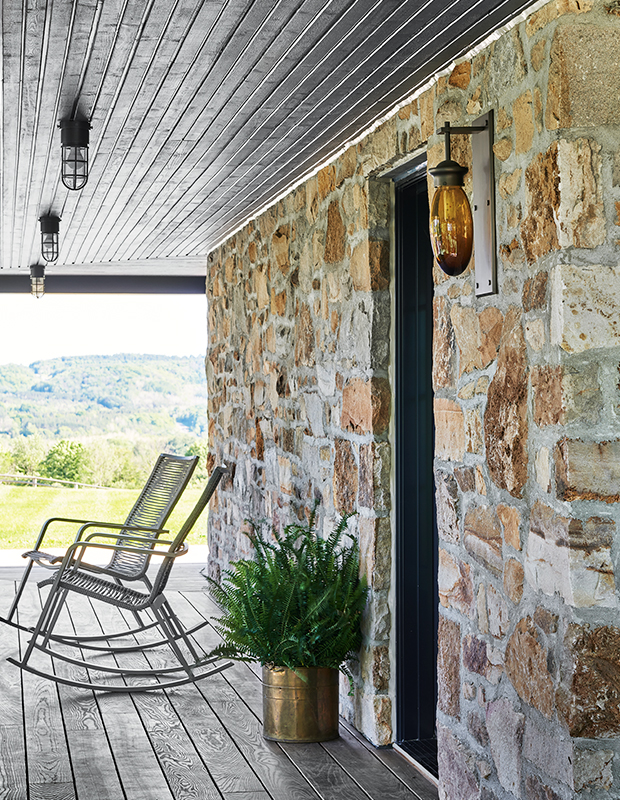
The foundation ties in to the new stone-clad exterior, assembled using five different types of stone that Halina picked herself. “It resembles an old romantic Tuscan villa,” she says of the structure. The footprint of the house remained unchanged except for a low-ceilinged bedroom that was turned into a glorious vaulted great room. Salt-toned plaster walls add to the farmhouse charm.
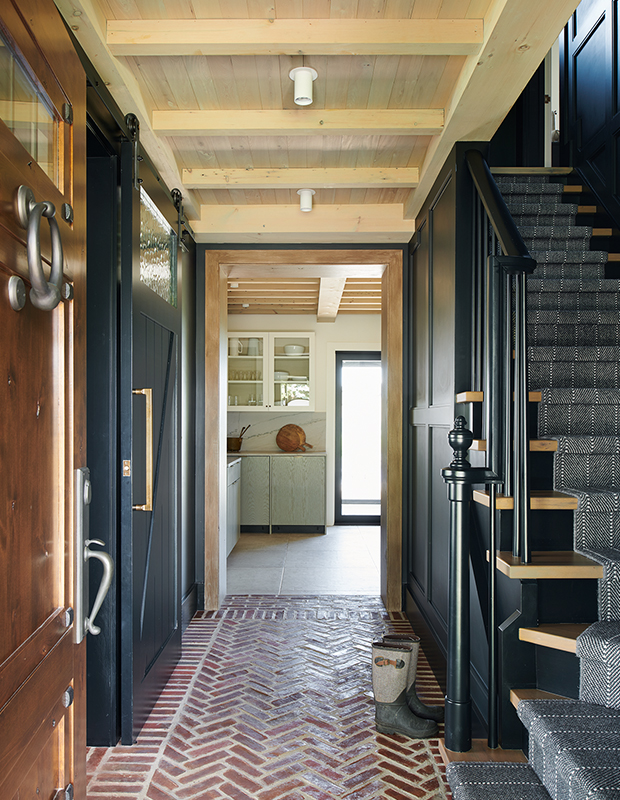
Halina favors a sophisticated yet comfortable decorating style. “I like the idea of informal formality,” she says. “There’s something formal about Southern elegance, but you don’t feel uptight — it’s soulful.” Having grown up on an equine farm outside of Kingston, Ont., Halina “rode horses before I could walk,” and her grandparents also had a cottage on the property. The nuances of a country build are in her bones: from her Czech grandmother she picked up Old European design habits, employing brick, linen and plaster in her creations.
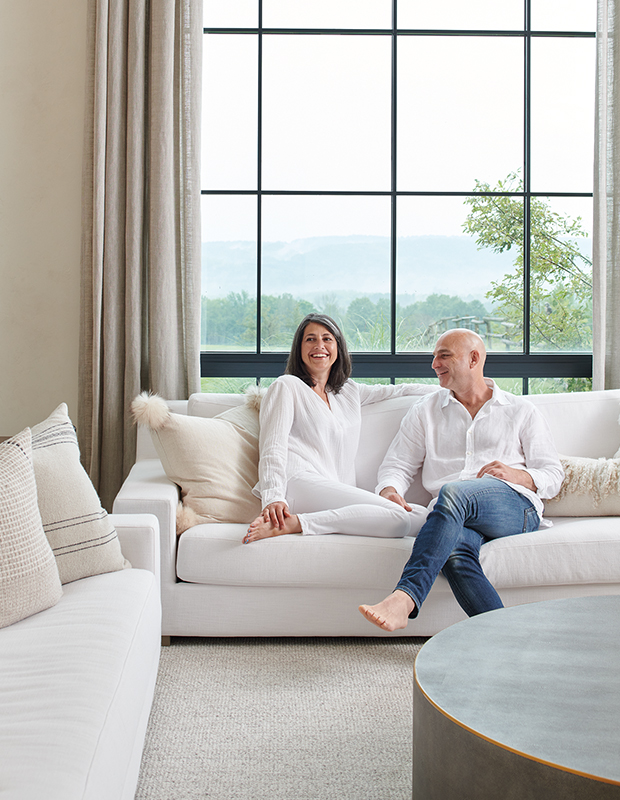
For the Lamanna farmhouse, the goal was to merge the couple’s styles. “My husband likes new things, and I like old things,” says Colomba. But Pat’s not all flash, either; he didn’t want an extravagant house. It was important to carve out special spots “to carry on the traditions we’ve been brought up with,” he says.
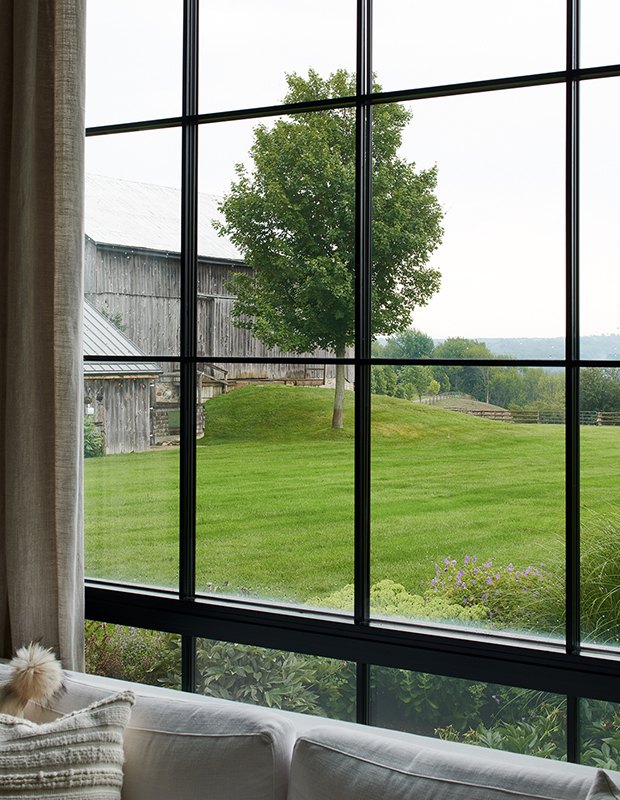
Graphic black windows frame the pastoral views.
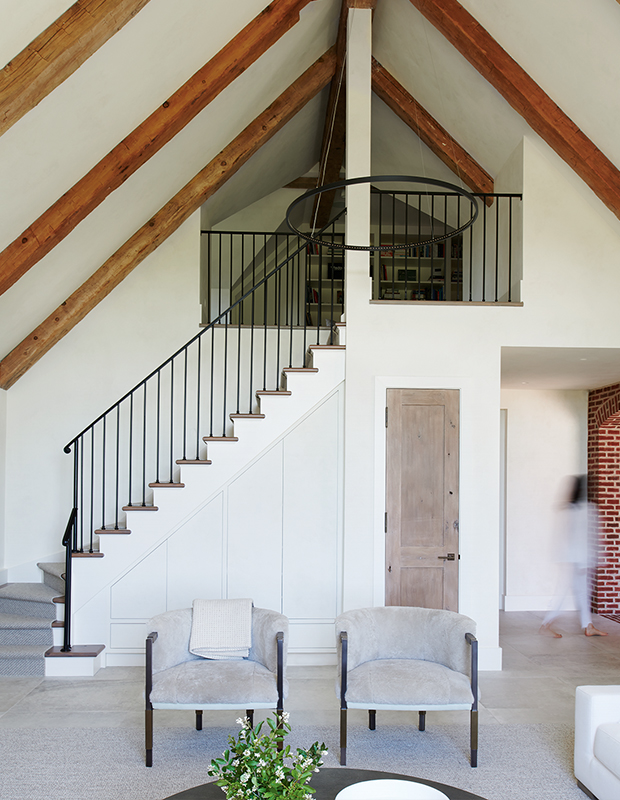
“The great room had the best view, so I made the roofline as high as I could and added a loft with stairs overlooking it,” says Halina, likening it to a barn loft where hay would be stored.
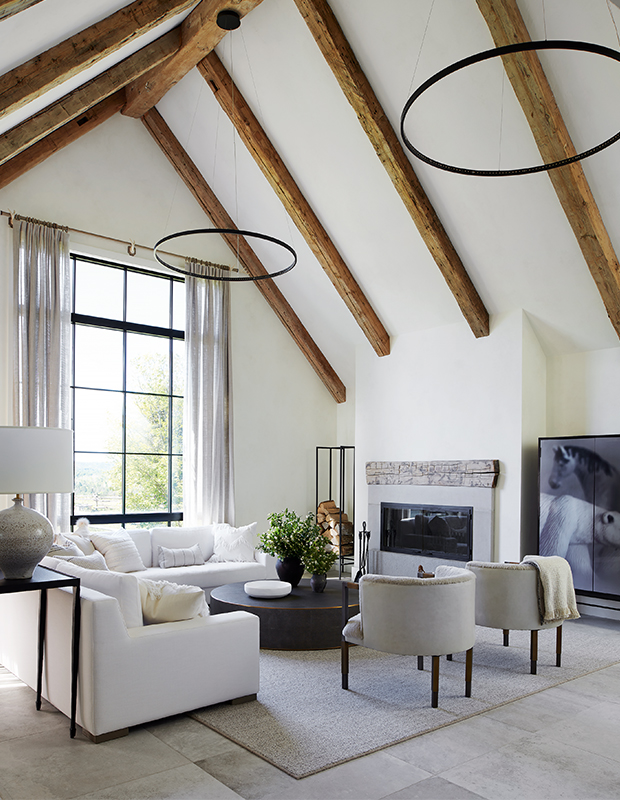
To create an airy feeling in the great room, Halina blew open the roof and added timber beams that draw the eye up. “We absolutely love it,” says Pat. “My favorite place is the great room; it’s very calming. We don’t have a television — we listen to music and have martinis.” Adds Colomba: “With the old-school wood-burning fireplace and the light coming in from the huge windows, it’s gorgeous — it’s the perfect combination of elements.”

The kitchen, in a modern farmhouse style with heritage touches, is deliberately intimate, with ceilings trussed in white oak beams. Colomba prefers to keep the quartzite-topped kitchen island for food prep only, so it’s designed without seating.
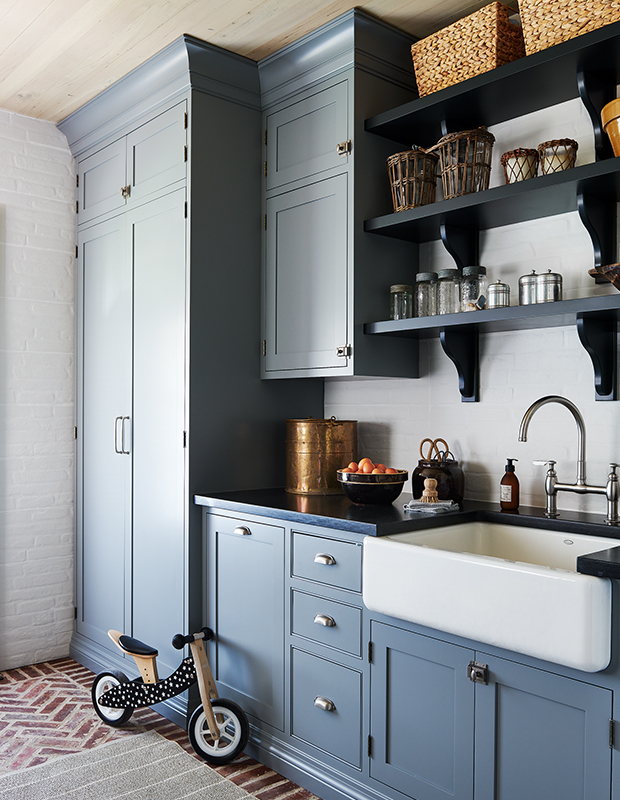
Ditto for the rugged brick in the mudroom off the side porch and foyer. And when selecting the palette, Halina went with fresh and punchy hues, uniting tonal white, cream and some of Farrow & Ball’s deepest blues.
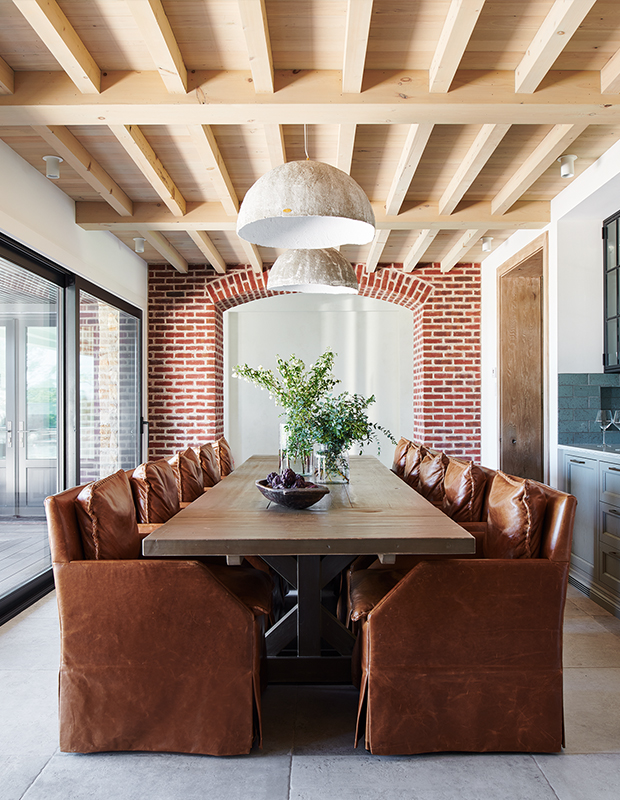
The arched brick wall, long trestle table and leather chairs conjure warmth and romance in the dining area.
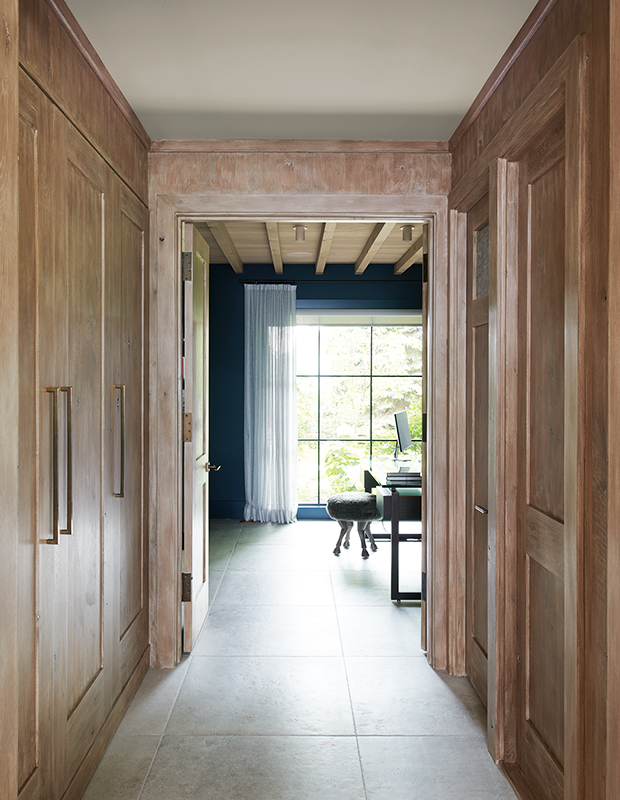
A kitchen pantry and powder room are hidden behind reclaimed white oak–panelled walls.
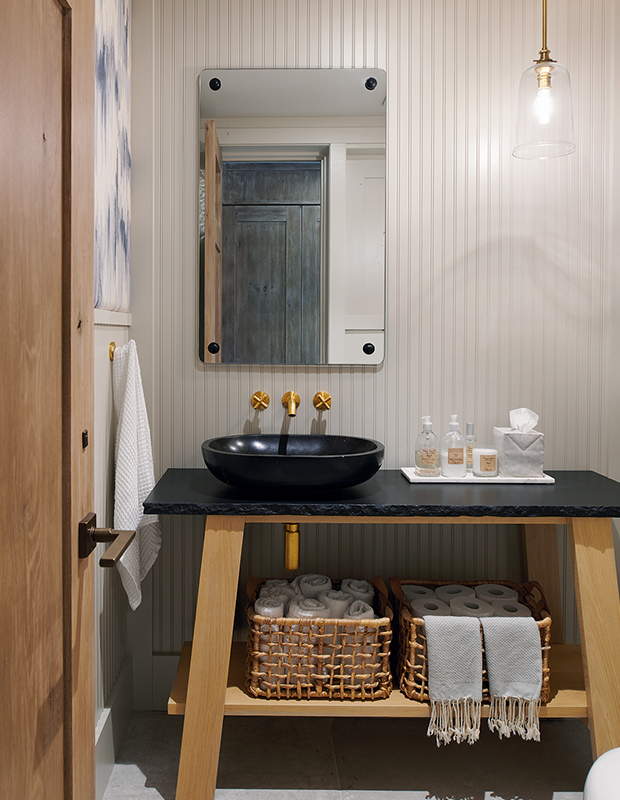
Beadboard and upholstered linen walls bring cosiness to the powder room. “I remember details like this in my grandmother’s house,” says Halina. “In days gone by, they would use this technique to insulate the walls.”
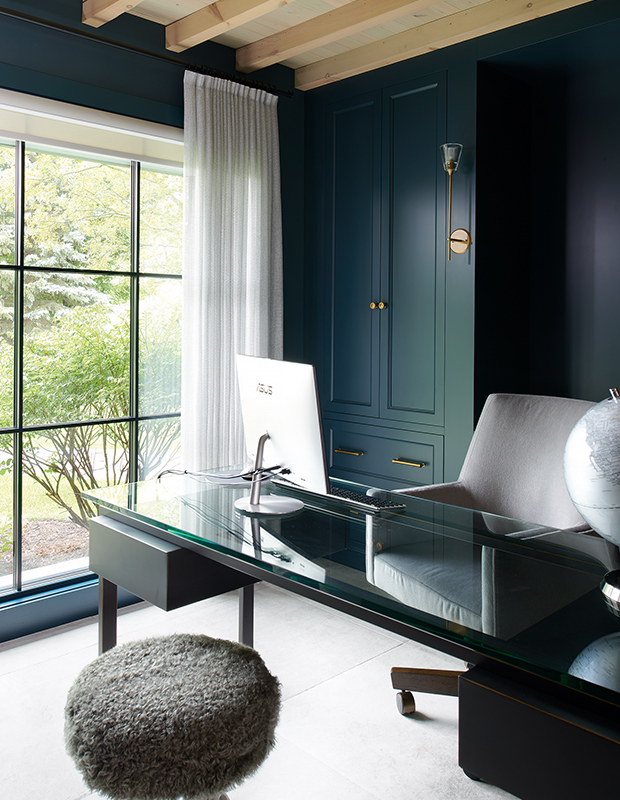
Pat’s office is painted in Farrow & Ball’s Hague Blue. Beamed ceilings, a motif running throughout the home, continue here.
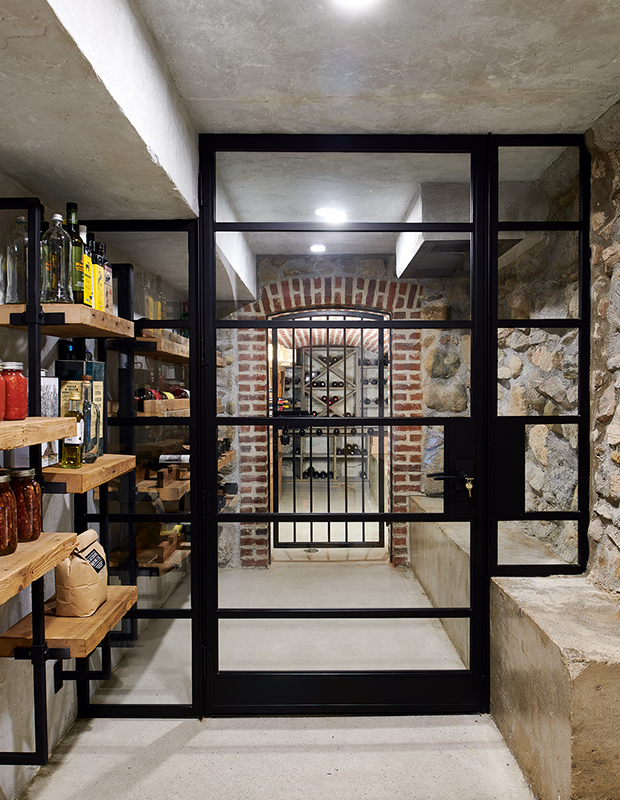
In the basement, Halina created a cantina; the family makes sausages, wine and tomato sauce, and also dries herbs and preserves vegetables plucked fresh from the garden. The cantina’s ancient stone foundation walls are a fitting backdrop.
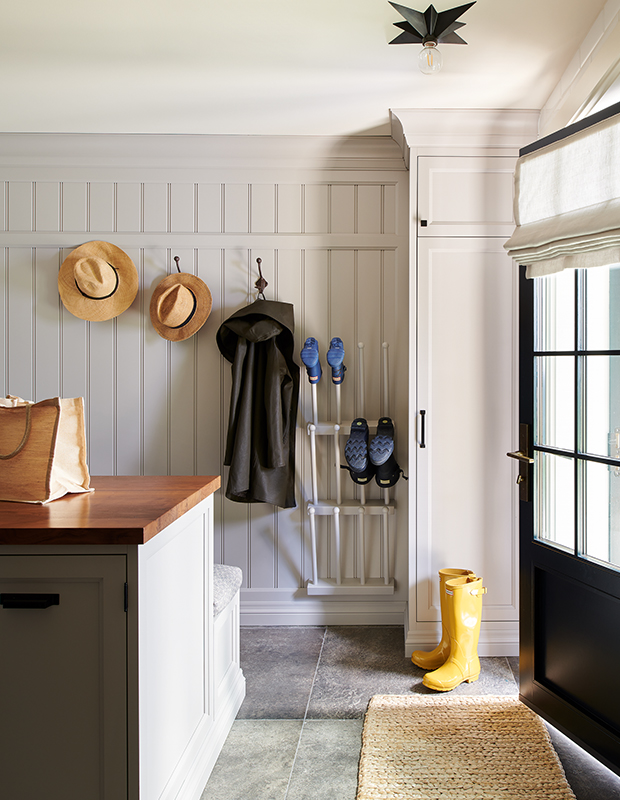
The basement mudroom is the epitome of country charm, with its putty paint color and tongue-and-groove panelling.
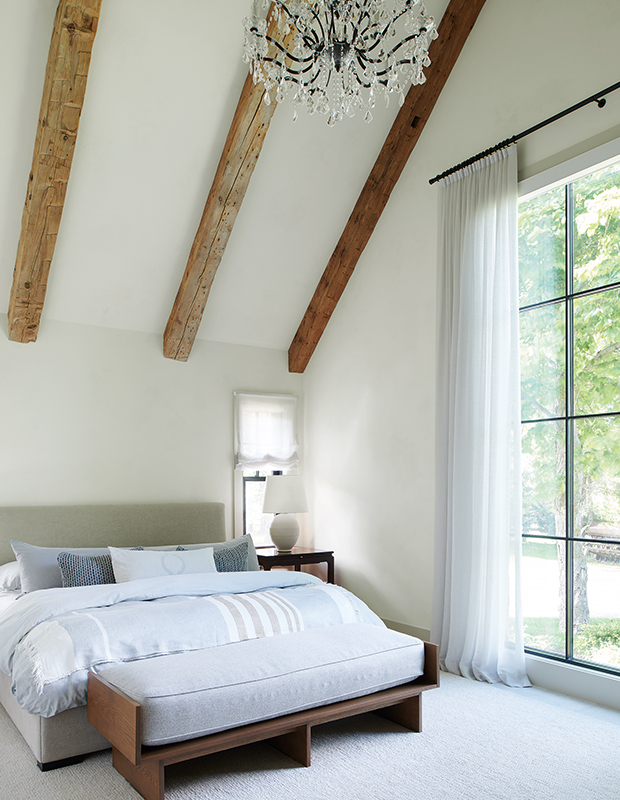
The principal bedroom on the main floor has 20-foot-high ceilings, reclaimed wood beams and a stunning view.
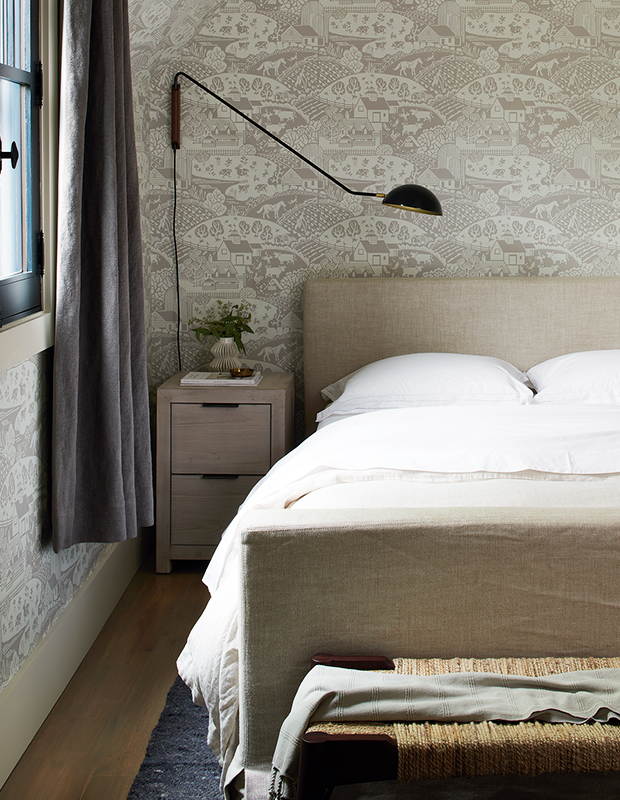
Wallpaper with a farm scene is perfect for the guest bedroom.
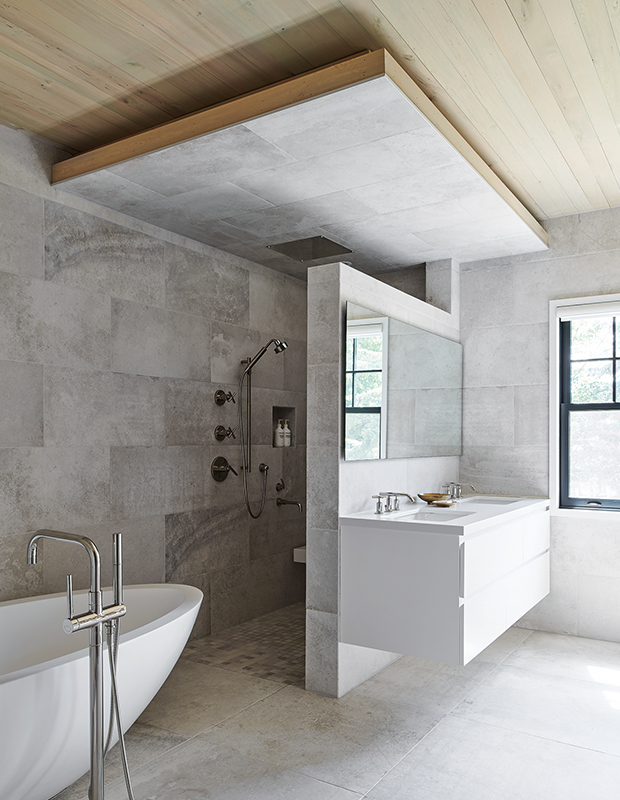
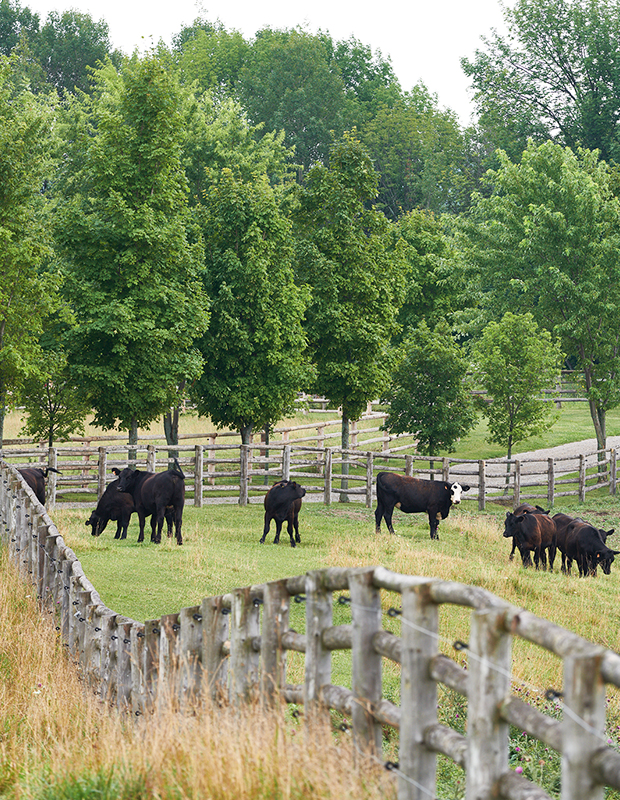
The couple brings in as many as 35 Angus cows to graze on the property over the summer.
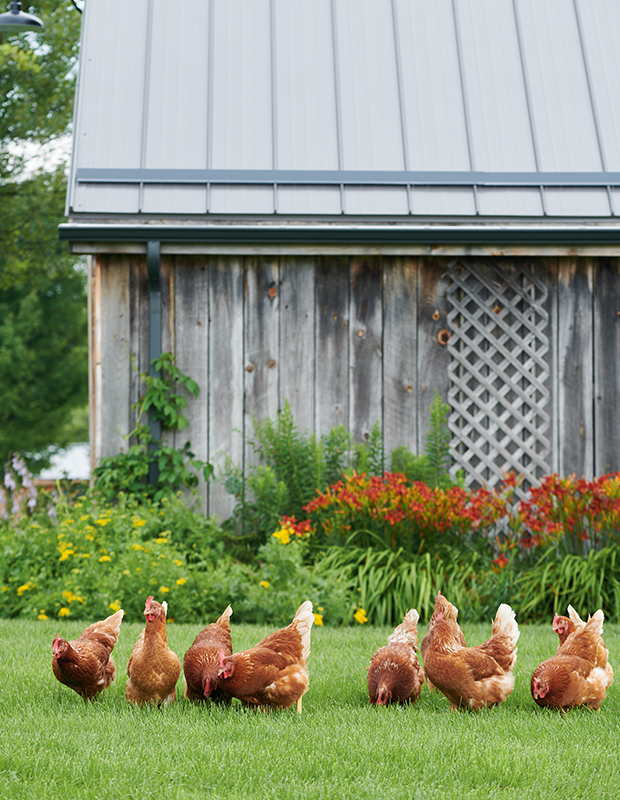
Today, the couple is overjoyed with the result of the renovation. (Halina is also on the hook for round three, involving a future carriage house, second kitchen and barn.)
Alex Lukey
House & Home June 2022
Christine Hanlon
Halina Catherine